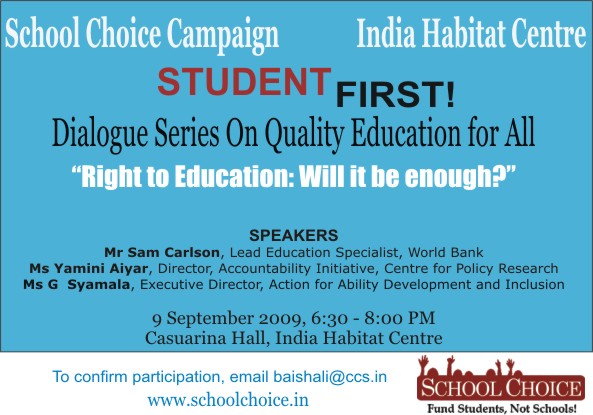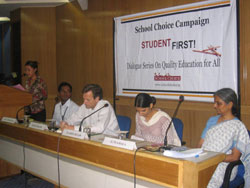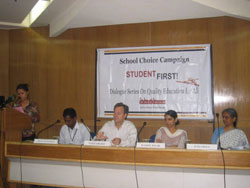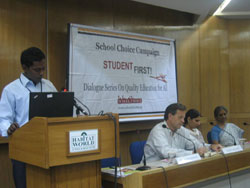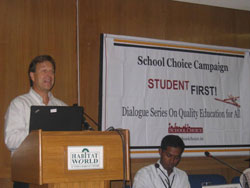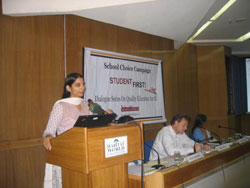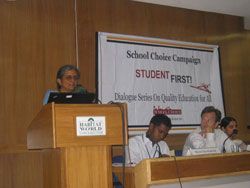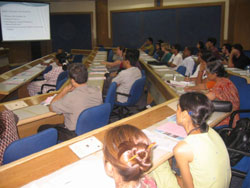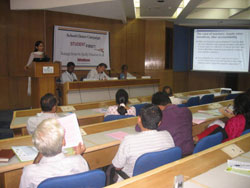September 2009 Dialogue
Right to Education: Will it be enough?
Panel discussion on the recent legislation of the RTE Bill 2009
The Right of Children to Free and Compulsory
Education Bill 2009 has been the single-most, significant
legislative business in the recently concluded Parliament session.
The Right to Education bill (as it is commonly known) is the enabling
legislation to the Eighty-sixth Constitutional Amendment which
guarantees education as a fundamental right to every child between
the ages of 6 and 14 years in India. The legislation, passed unanimously
by both Houses of Parliament, promises to transform the elementary
education landscape. The promise, potential and pitfalls
of this historic legislation were central to the Student First!
Dialogue Series held at the India Habitat Centre on 9 September
2009.
The topic for the evening’s discussion
was Right to Education: Will it be enough? The panel of experts
represented the fields of education, development work and public
policy to provide a multidimensional perspective on the issues
surround the Right to Education.
Mr Sam Carlson, Lead Education Specialist
– World Bank, addressed the ‘quality’
aspect of the legislation. Mr Carlson raised interesting questions
on the perception of quality in education as well as putting forth
the case for considering socioeconomic factors, other than those
determined by just school environment, to measure learning achievements.
Ms G Syamala, Executive Director –
Action for Ability Development and Inclusion, shared
her experiences working with the government to make the RTE Bill
more inclusive, and outlined the challenges faced by children
with disabilities. Ms Syamala argued that the access to education
for persons with disabilities was not just hindered physically
but also from mistaken attitudes.
Ms Yamini Aiyar, Director – Accountability
Initiative (Centre for Policy Research), presented her
views on how the accountability of the fundamental Right to Education
will be guaranteed by this legislation and strongly impressed
upon the need for local monitoring of this right. Ms Aiyar proposed
that local monitoring bodies be given greater powers and resources
to ensure greater accountability.
The discussion following the presentations addressed
the challenges in quality, access and accountability facing the
government and outlined ways and means to overcome the same. The
event was one in the series of longstanding engagements for the
School Choice Campaign with the Right to Education bill.
For more information on the legislation, analysis
and research, please visit: http://schoolchoice.in/campaigns/rte.php
|
|
| Ms Baishali Bomjan welcomes the panel
and the participants |
(L-R): Mr Manu Sundaram, Mr Sam Carlson,
Ms Yamini Aiyar, Ms G Syamala |
|
|
| Mr Manu Sundaram moderating the panel
discussion |
Mr Sam Carlson, Lead Education Specialist, World Bank
making his presentation |
|
|
| Ms Yamini Aiyar, Director, Accountability
Initiative, Centre for Policy Reseach sharing her viewpoints |
Ms G Syamala, Executive Director, Action
for Ability Development and Inclusion presenting her viewpoints |
|
|
Audience
present during the discussion
|










